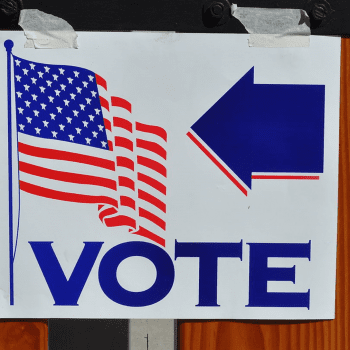So over the weekend, in case you missed it, Drudge highlighted a photograph of Hillary Clinton needing help to get up stairs.

(The screen shot is actually courtesy instapundit.com, since by the time I got around to it, the site had changed.)
As it happens, this is an image from earlier this year, not from this weekend. And I think that Drudge realized that a bit late, since the banner headline early on Sunday featured just this incident; then the recurring falls were added later.
At the same time, various sites which are my go-to to see what the far right is up to are featuring issues about Hillary’s health.
The conspiracy-peddling Infowars.com features a video which packed dozens of accusations into 5 minutes: everything from seizures and memory loss to alcoholism to syphilis, to being a sociopath and lacking empathy.
The slightly less rabid site The Gateway Pundit reports that Clinton has a mysterious “handler,” seen in multiple pictures, who seemed to coach her through a moment of freezing up, and who carries what the blogger claims to be an auto-injector pen that’s used to treat seizures. This site also claimed that Clinton had a seizure in front of a camera a couple weeks ago. (Yes, Snopes supposedly debunked this — but they didn’t really have much to say but the fact that this is all speculation and unproven.)
And there’s the infamous e-mail from Huma Abedin in which she says that Clinton is “often confused.” The claims that Clinton hasn’t had a press conference in such a long time because her weak health means that she or her handlers are worried that she’d say something fooling or simply not have the stamina that’d be needed to stand in front of the cameras for an extended period of time, without a commercial break. And speculation about exactly what Clinton was up to at her extra-long “potty break” during one of the Democratic debates.
Now, look, I don’t think anyone should consider Infowars as a reliable news source. And The Gateway Pundit has been useful in the past but is more and more prone to promote rumors.
Nonetheless, there is a potential issue here. How great is the risk that an individual could indeed have a serious health issue, such as the neurological problems of which Clinton is accused, hide it from the general public, and then be unable to perform the duties of the office, or, worse, imperil the country in the midst of a crisis, or a meeting with heads of state?
And neurological problems matter far more than physical health such as, say, a need to use a walker. I think everyone with an aging parent has had these concerns — and trust me when I say that a fall, and a head injury, at Clinton’s age, is nothing to shrug off and can have lasting effects long after the immediately-visible physical effects seem to have been dealt with.
So should a candidate be required to prove they are in good health?
Unfortunately, we can’t really do that. Would we impose a requirement that each candidate for presidency, in order to get on the ballot, submit a full list of medications? Could there be a disqualifying list of medical conditions? Who would determine this? Who would disprove accusations?
Could we, instead, set a maximum age for the office of the presidency? Could this be done by legislation or only by amendment?
Is this an exaggerated concern? Well, remember the days in the mid-80s, where it seemed like a regular occurrence that an aged Soviet leader disappeared from public view with a “cold,” then was later announced to have died.
ADDED: Really there are two dimensions here. Should a candidate be required by law to submit to medical exams? And should there be substantial public pressure to do so, or a demand by the national parties to do so as a part of the overall process of nomination? So far, medical records that the candidates have released are generally generic statements by their personal physicians, not workups by outsiders, but conceivably a party could make this demand of its candidates more easily than the government could — assuming that a party is a neutral entity in the nomination contest, which was, of course, not the case for the Democrats this year.













